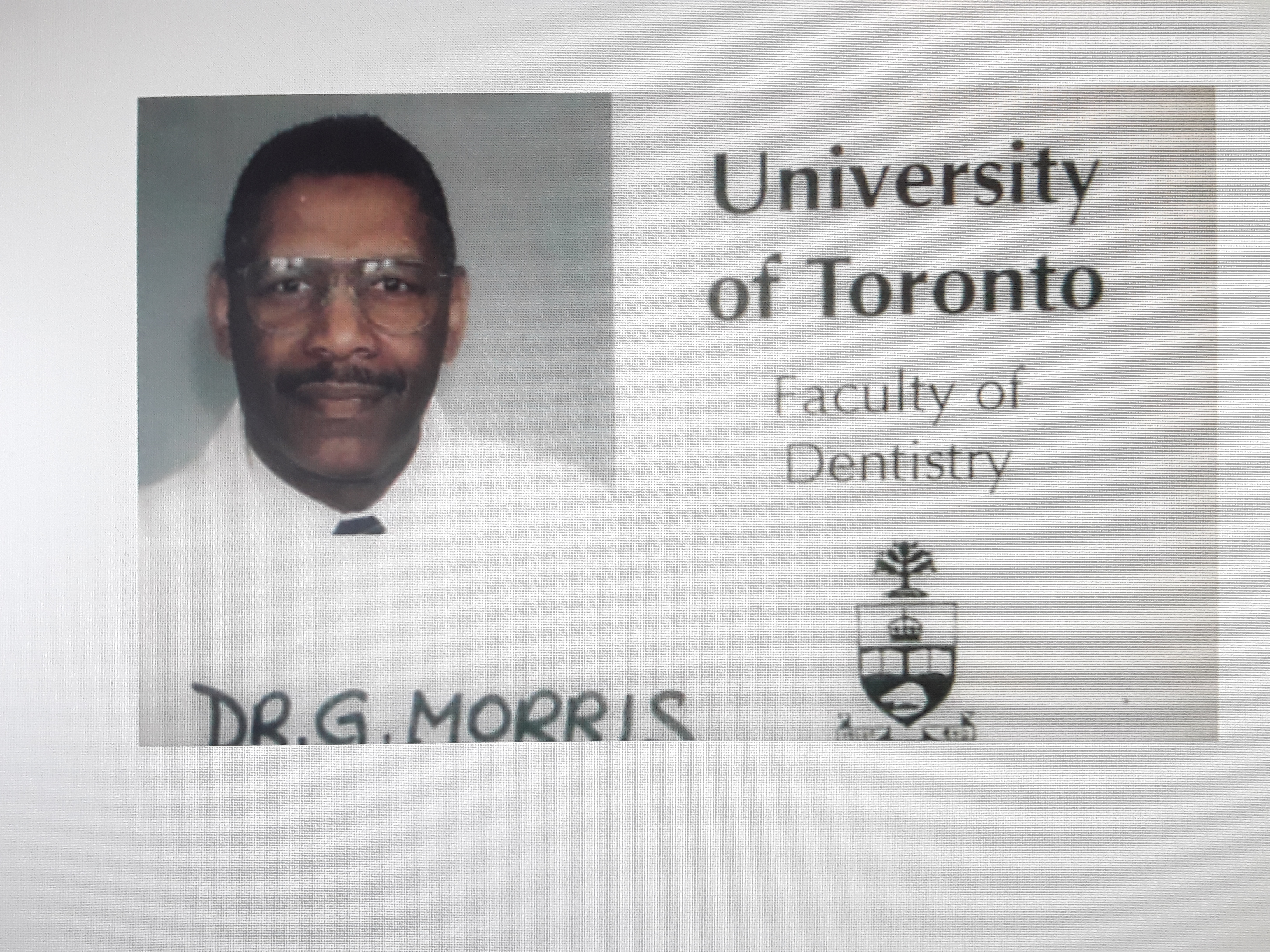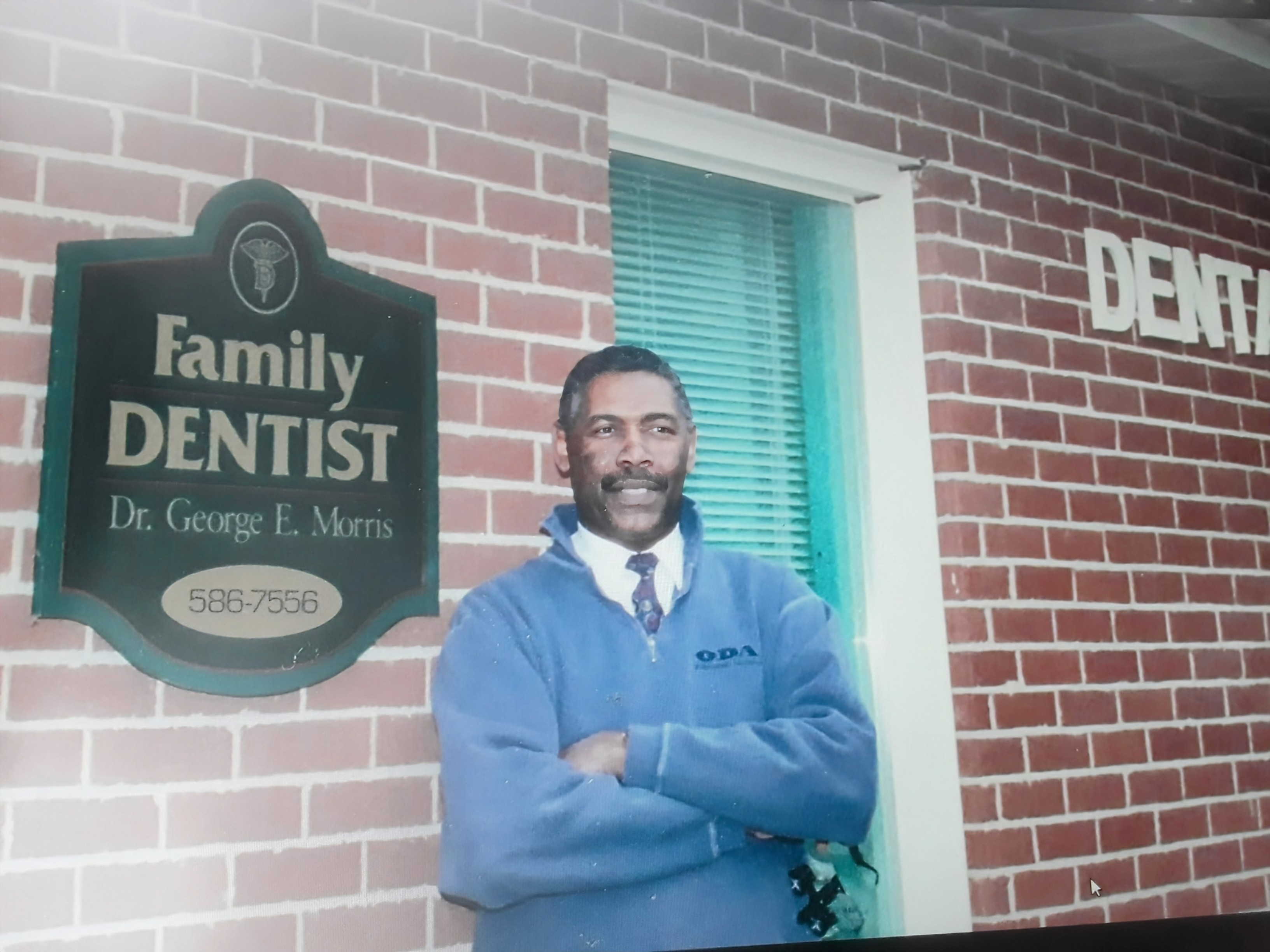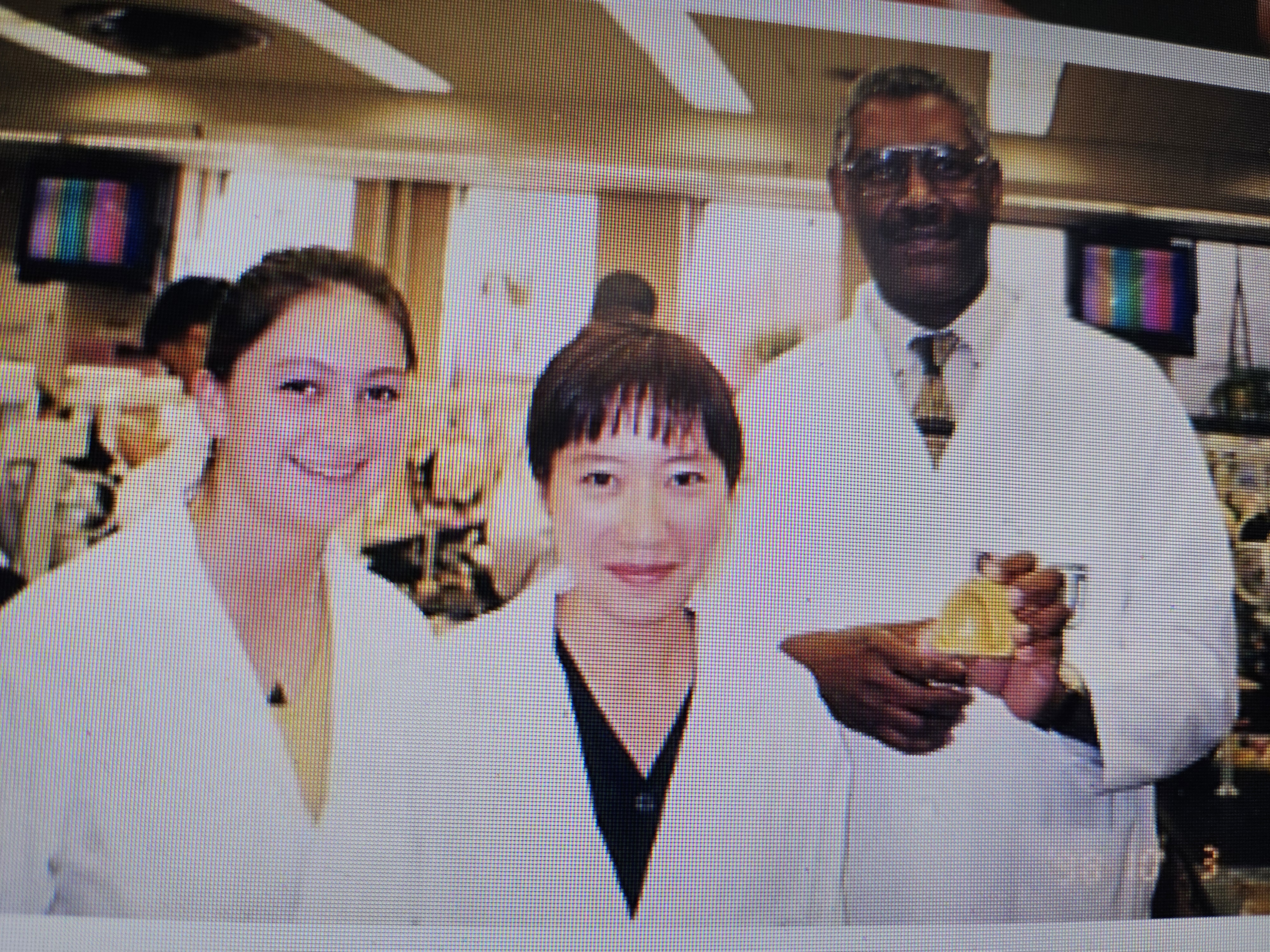
Interview Weekend – Then and Now with Dr. George E. Morris 7T4
February marks Black History Month and also happens to be when the Faculty of Dentistry hosts Interview Weekend for hundreds of hopeful, potential incoming U of T Dentistry students. Dr. George Morris 7T4, former instructor and Interview Weekend volunteer, shares his insights and reflections about his time at U of T Dentistry, experiences with Interview Weekend and more. Read on about this remarkable alum.
What do you remember most about your time at dental school?
In 1970, in my first year of dental school, I was designated “Father of the Class of 7T4” since was 35 years old, the eldest of my class of 127 students. I remember long hours, textbooks and notes. Lab work, bench partners, outstanding teachers with insight and good rapport, and some not so good instructors. There was camaraderie and the Village House pub, and the start of some long-standing friendships.
In the mid-1980s, I began instructing to smaller class sizes of first-year students, eager to learn in the labs. It increased my own zeal to participate in their journey.
When I later became an interviewer, I felt the stress and apprehension displayed by the candidates. My urgency was to ease that tension to allow for comfortable exchange in conversation.

What inspired you to volunteer on the interview committee?
A conversation with Dr. Phil Watson, during which he laid out (as he saw it) my qualification for that duty, and had me recall my own situation and experience at my interview years prior. At the time, I was an instructor with Dr. Watson in BioMaterials science labs and also a National Examiner with the NDEB. I then agreed to serve as an Interviewer.
Being one of four black students in the Class of 7T4 (two female and two male) only played a very small part in shaping my perspective for the role. I drew on experiences such as hopes, dreams, the courage to emigrate, the responsibility of my wife and two infants, my upbringing, cultivation, education and qualifications, life skills, my impression of prior employers, and most important my lasting (first) impressions of certain persons of the U of T Dentistry family.
Do you remember a question you asked candidates?
Yes, it was the same question asked to me by my interviewer decades before. With eye-to-eye contact, smiling, and in soft voice with reassurance, and support, I ask: “You are here being interviewed, tell us how prepared are you for this moment?” All the while, being obviously attentive and interested, and at a timed opening, ask quietly, “Explain a bit more about…” deftly choosing with empathy a part of the discourse (family, sports, travel, etc.).
How has U of T Dentistry played a role in where you are today?
Today, in retirement, I am happy, content and full of gratitude. Fifty years of successful family practice, 20 years in Oakville, and the remainder in Port Rowan on Lake Erie. I have been welcomed, supported, respected and loved by everyone with whom I shared my professional life.
Ruth and I raised two children, who now are enjoying successful professional lives, and enjoying bright, healthy families. We have grown in the communities, volunteered in Parks and Recreation, on-call hospital emerg shifts, and Lions Club membership.
To summarize, U of T Dentistry has made me gain knowledge, learn to analyze, to prioritize, organize, develop the skills to diagnose definitively, and therefore plan effectively thus ensuring successful outcomes. As well, confidence in being self-reliant, embracing change and evolving positively as the years rolled by.

(Dr. George E. Morris at his Family Practice)
What makes U of T unique?
U of T is a diverse community and teaches well. Students from various backgrounds are together, all on common path to learn and contribute to each other with fresh perspectives. Our University fosters intellectual discovery and research, shapes lives, encourages self-reliance and breeds success.
In what ways do you believe the Faculty of Dentistry has evolved?
Reduced class size, gender equality (in1970, only 10 per cent were female), the hiring of teaching associates who radiate fairness, empathy and inclusiveness, the upgrading of labs, clinics and other teaching areas. As well, (I hope) teaching and dental education psychology, how students learn, their cognitive styles, teaching which incorporates data and specialized software, easy access to information. (In 1970, a book had to be used overnight for return to library in morning).

(Teaching at Lab 4)
What impact do you hope to see in the future?
The future is NOW, and I hope that dental teaching has evolved to effectively manage mass disasters, pandemics and other disrupts. Encourage and assist students participating online, video conferencing, equipment, isolation effects and the like. As well, I hope there is merging of biomedical sciences with preclinical dental education, and the careful designing of curricula utilizing chosen cases properly sequenced, teaching also the all-important areas of stress management, care, rapport and empathy.
Future grads leave Edward Street (and Village House) confident and skilled in the use of modern imaging, scanning, robotics, and artificial intelligence. Their savvy with social media access and awareness of the public as partners in the community can ensure outreach and promotion. As well, graduates will have heightened awareness of the fluctuations of healthcare systems and their influence on public acceptance and their choices of care.
Is there a message you wish to share with the U of T Dentistry community during this special 150th anniversary year?
Continue to demonstrate high standards in education, teaching and research. Always show guidance, good rapport, empathy, fairness and transparency. Use social media as outreach and promote and maintain a positive reputation.
Tell us about your current life.
I now reside in a Retirement Community on the Niagara Peninsula, overlooking Lake Ontario. The campus offers Independent Living with amenities for Octogenarians and Nonagenarians, with everything looked after. I celebrate my 90th year in March 2025.
For daily events, I can select for participation, and I keep active with chosen hobbies. For the Fall and Winter I enjoy cooking and baking in our Open Kitchen. Spring and Summer allows gardening and maintenance of four large flowering planters on our second-floor patio which faces west. I may invite small groups to sit and enjoy a glass of wine and bask in the beautiful Canadian sunset.
I contributed my favourite recipes to the Retirement Communities Annual Cookbook 2023 edition and 2024 15th Anniversary edition. Among the selected entries for 2023 was Eva’s Watermelon Salad, created by my classmate and colleague, Dr. Eva Saxell, herself a practicing dental surgeon and trained chef. At my request it was graciously submitted and her delightful recipe won raves far and wide.
There are occasions for rides on our Fun Bus to the Falls, or off-campus lunches, or to mall shopping. My needs take me to our grown grandsons for a beer, or to the west coast to visit our daughter and family. Indeed, currently I am comfortable, joyful and content. For all these Blessings, I give thanks, daily.
Our two children have planned a 90th Birthday Brunch at Old Mill Toronto in March 2025. A great time will be had by all 145 guests expected. I look forward to raising the proverbial glasses with my family, my classmates and other friends of long-standing. Meanwhile, WALK GOOD.
Top photo: Dr. Arlene Dagys, Dr. George Morris, Dr. Margaret (Marnie) McArthur at their 50th Class Reunion